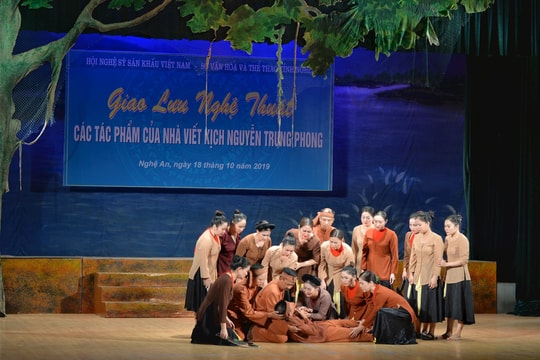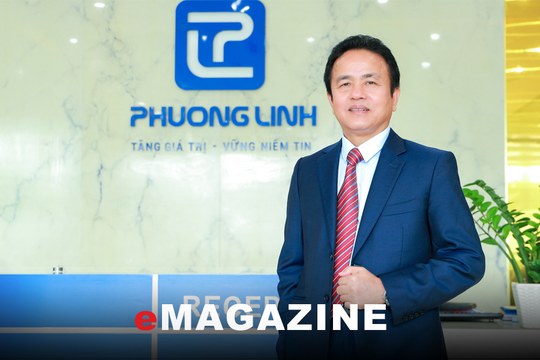Prof. Dr. Mach Quang Thang - Journey following Uncle Ho's footsteps
“The profession chooses the person, it is like a predestined fate of my life. From the path of scientific research, to approaching, learning and studying the person, the ideology of Ho Chi Minh and the Communist Party of Vietnam is a path that the more you go, the longer it seems”… (Prof. Dr. Mach Quang Thang). On that path, he has shown the mettle, talent and honesty of a historian, with works of profound practical and contemporary value.
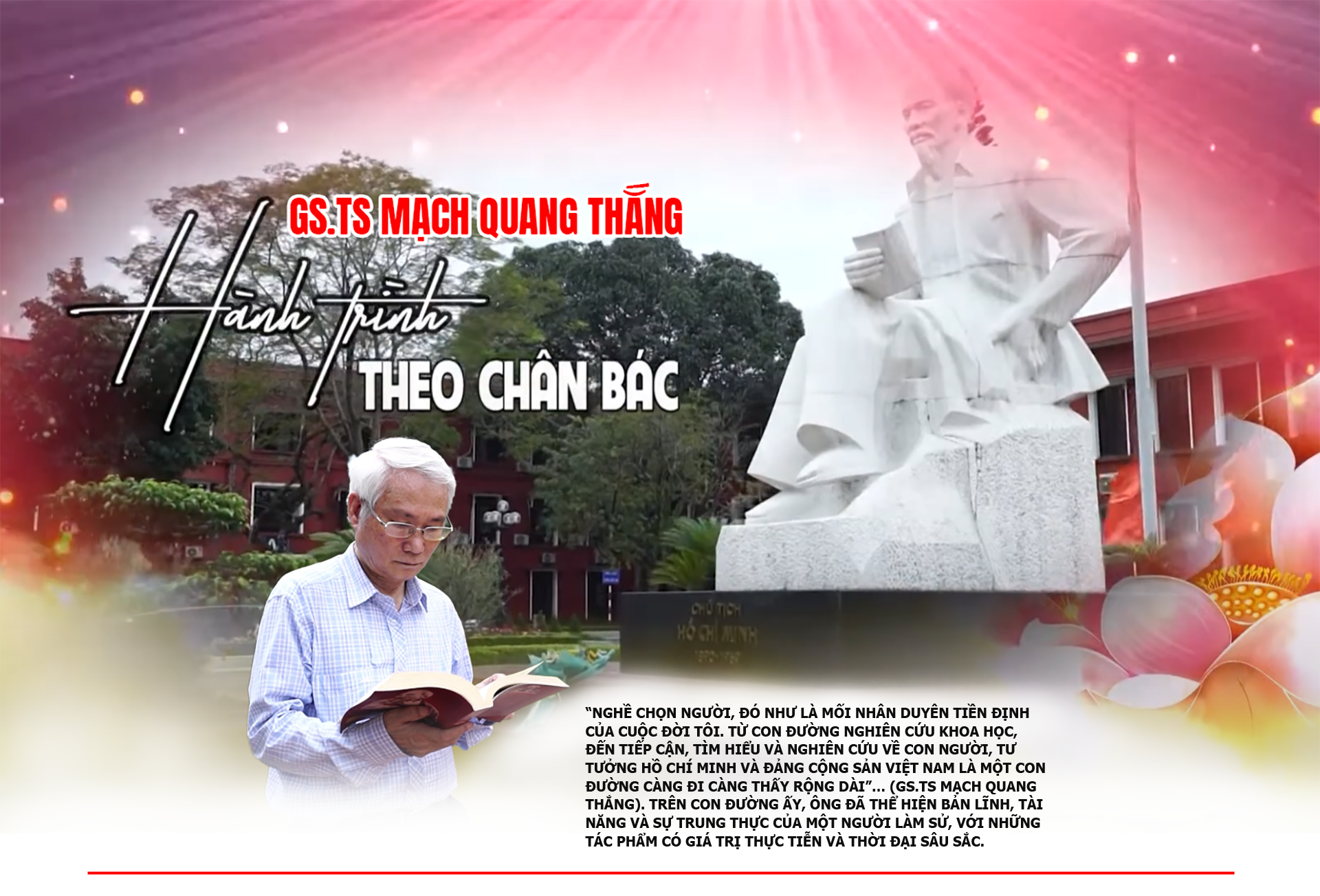
Le Xuan /Technique:Hong Toai• September 19, 2025

Professor Mach Quang Thang's hometown is in Quynh Mai ward, a poetic coastal area associated with Con temple, the most sacred temple in Nghe An. His generation was born in the period when the North entered the construction of socialism, fighting against the destructive war of American imperialism. At that time, the high school level was 10/10, not 12/12 as it is now. The class was made of bamboo and thatch, and when there was a war, they borrowed people's houses to study. “The classrooms were sometimes half submerged and half above water to avoid bombs and bullets, so when it rained, the water would reach half the classroom. At those times, students had to wade through the water to sit at their desks to study. The only thing in the classroom that stood high above the water was the blackboard and the teachers’ seats. One time, the math teacher called a student to the board to do an exercise. He waded through the water and unfortunately fell, getting soaked. The whole class laughed, and the teacher jumped in to help him, his clothes also getting muddy. The next times, when the water flooded the classroom, the teacher never called anyone to the board again.” (“Choosing a career - choosing a career”, Prof. Dr. Mach Quang Thang)
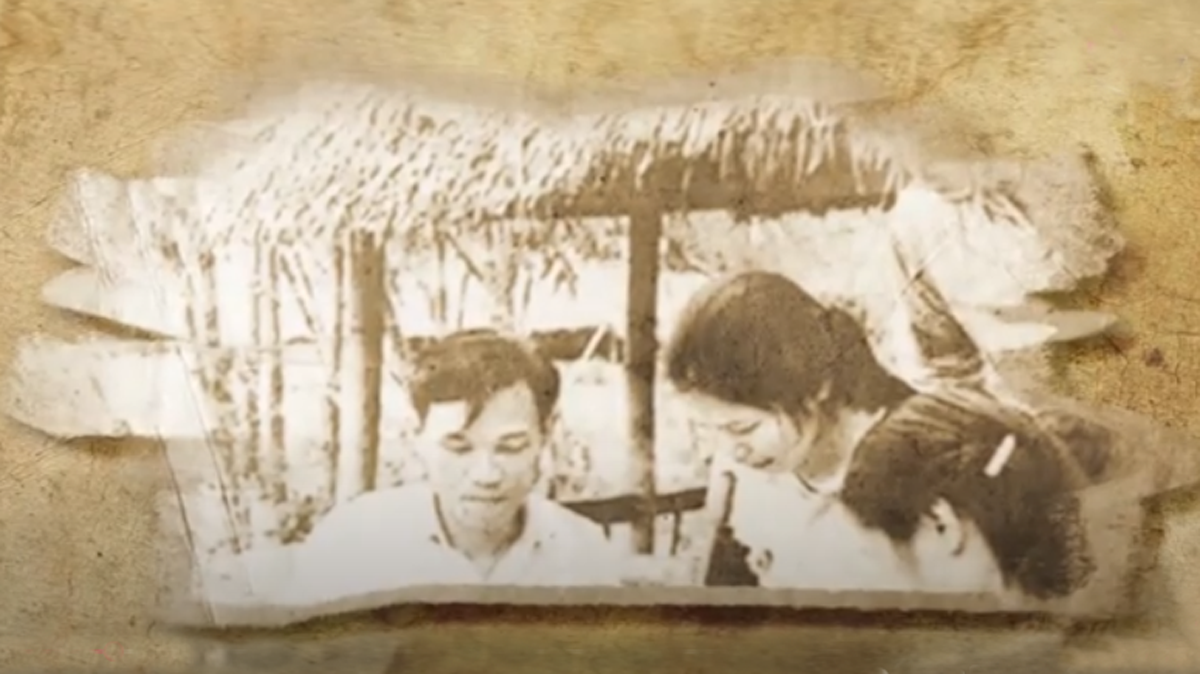
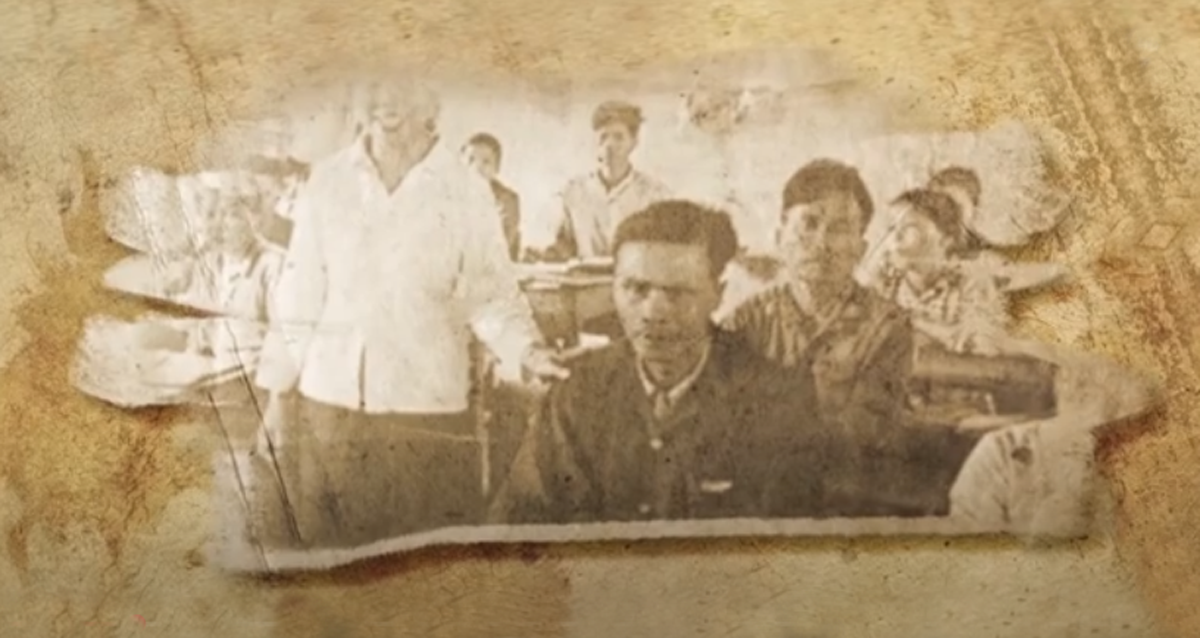
After graduating from high school, he was selected by his school to study abroad. The medical examination location was in Do Luong district, nearly a hundred kilometers from home. Borrowing a bicycle was difficult, getting there was even more difficult. As soon as he arrived, he rushed to the medical examination, and as a result, he was rejected because of poor health.
That was also fate, so in mid-October 1970, the young man Mach Quang Thang received a notice from the University of General Studies calling him to enroll. He prepared his simple luggage alone to go to the Capital. For the first time, he walked from Hang Co Station to Bo Ho, and it was also the first time he saw Hoan Kiem Lake, The Huc Bridge, Ngoc Son Temple and Turtle Tower. Everything was strange to him. Just like that, he went to house number 16 Le Thanh Tong Street to complete the enrollment procedures.
Hanoi is entering Autumn, a little chill and rustling breeze, mixed with a bit of strong milky scent, makes his footsteps light and airy. He has officially become a student of the 15th course of History Faculty, Hanoi National University, starting a new learning journey.
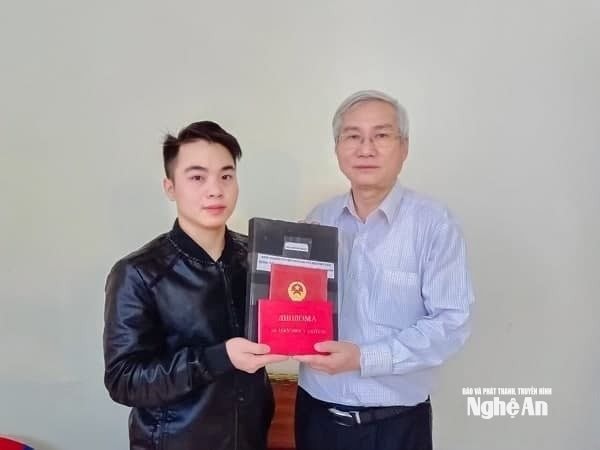
During the war, schools were evacuated to many places, from Thanh Oai district, Ba Vi district - Ha Tay to Yen Phong district, Ha Bac province... Although it was hard and deprived, in return, the History students that year were able to study with the four pillars of the country's history: teachers Dinh Xuan Lam; Phan Huy Le, Ha Van Tan; Tran Quoc Vuong, along with many dedicated lecturers, who ignited passion, enthusiasm, and a humane, noble way of life. The school was evacuated, the students lived in the countryside with the local people, the time spent in class was not much, but the more time passed, Mr. Mach Quang Thang realized that it was an extremely precious time. The great teachers passed on knowledge and, more importantly, nurtured the passion for scientific research for the students that year.
After 5 years of diligent study, Mach Quang Thang was assigned to work at the Central Party History Research Department, working in the research group during the period when the Party led the Socialist Revolution. He began to participate in researching and compiling Party history such as: Party Documents 1930-1945, 1945-1954; research works on the life, career, and ideology of Ho Chi Minh and other Party leaders...
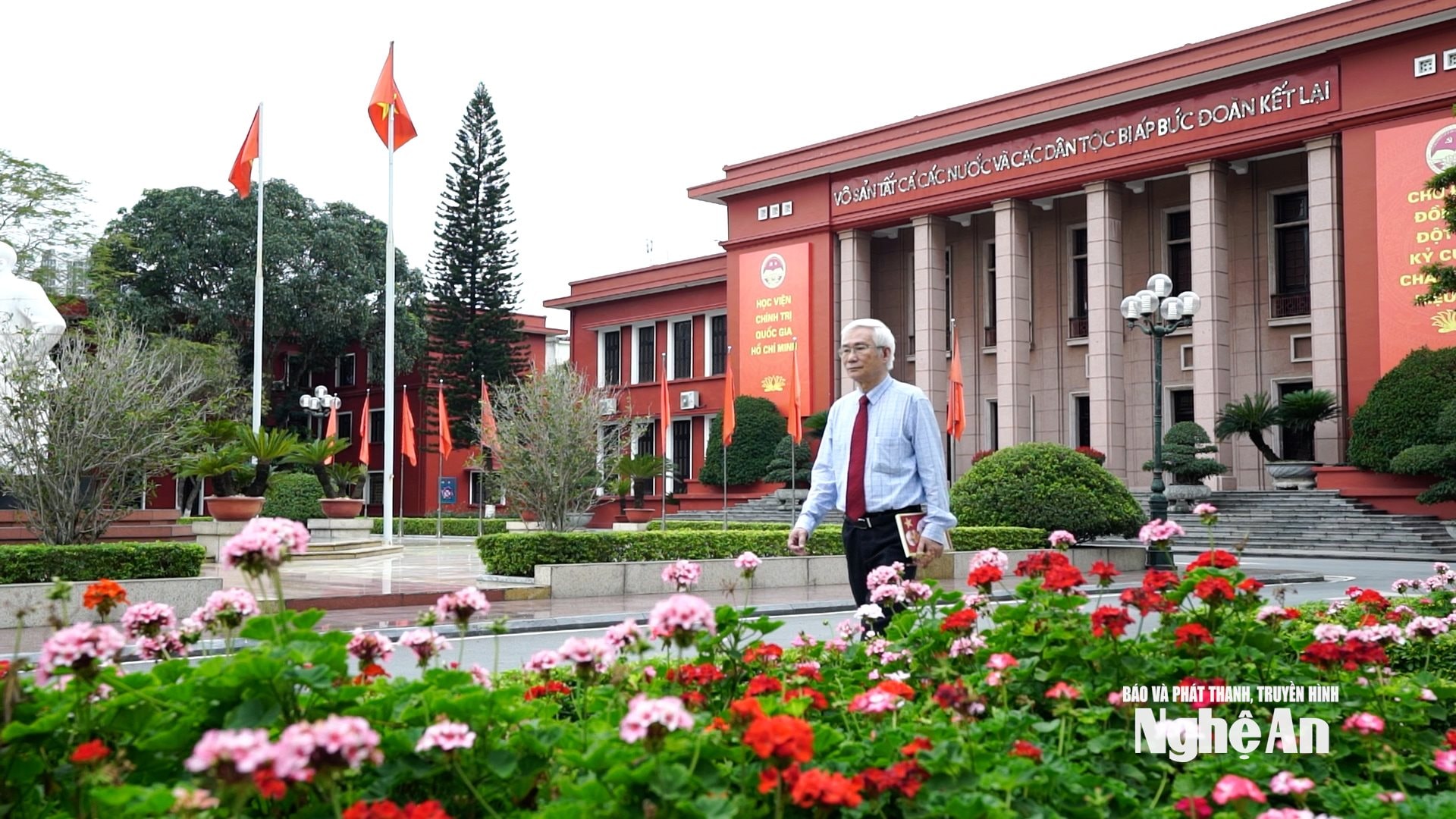
In October 1982, he was sent by his agency to do research at the Institute of Party History, Bulgarian Academy of Social Sciences. A major turning point in his research career, creating the foundation for him to later become the youngest professor of History in our country.
Coincidentally, the day he went to do his research, it was also October, along both sides of the road from the airport to the school were rows of roses that seemed endless, shimmering with the poetic autumn sunlight of the Balkan region. At that time, the country was still in difficulty, studying abroad meant shouldering heavy pressures. He had to study and study, master the second language and acquire new knowledge and methodologies; he had to save and save, to buy something to send home to help his family during the famine. Both tasks were equally difficult. There were times when he thought he would have difficulty overcoming them.

One of his greatest acquisitions during his time studying abroad in Bulgaria was the methodology in historical scientific research: Always respect the truth, tell the truth clearly and write the truth. That is the principle he uses to carry out his works and projects.
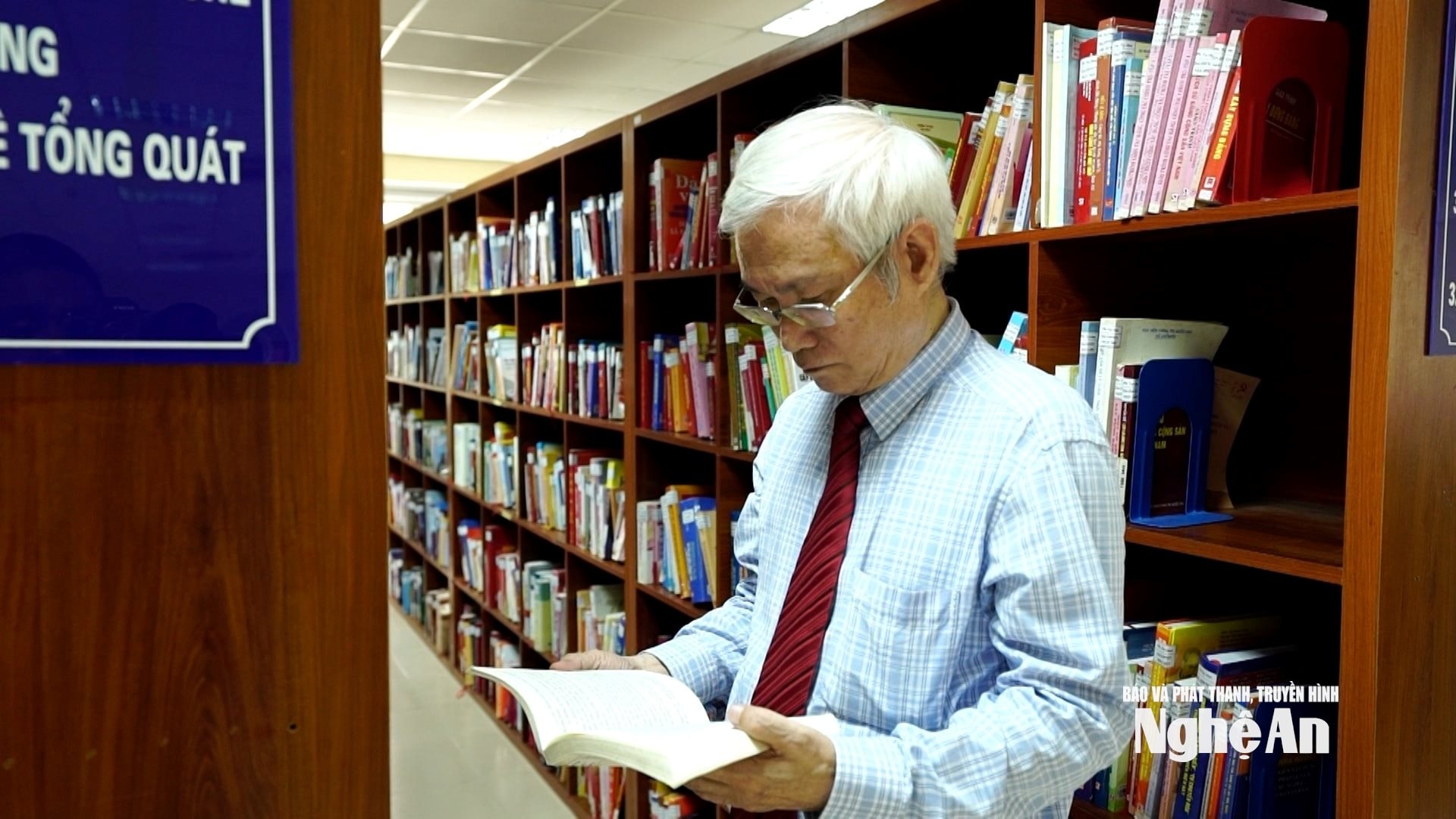
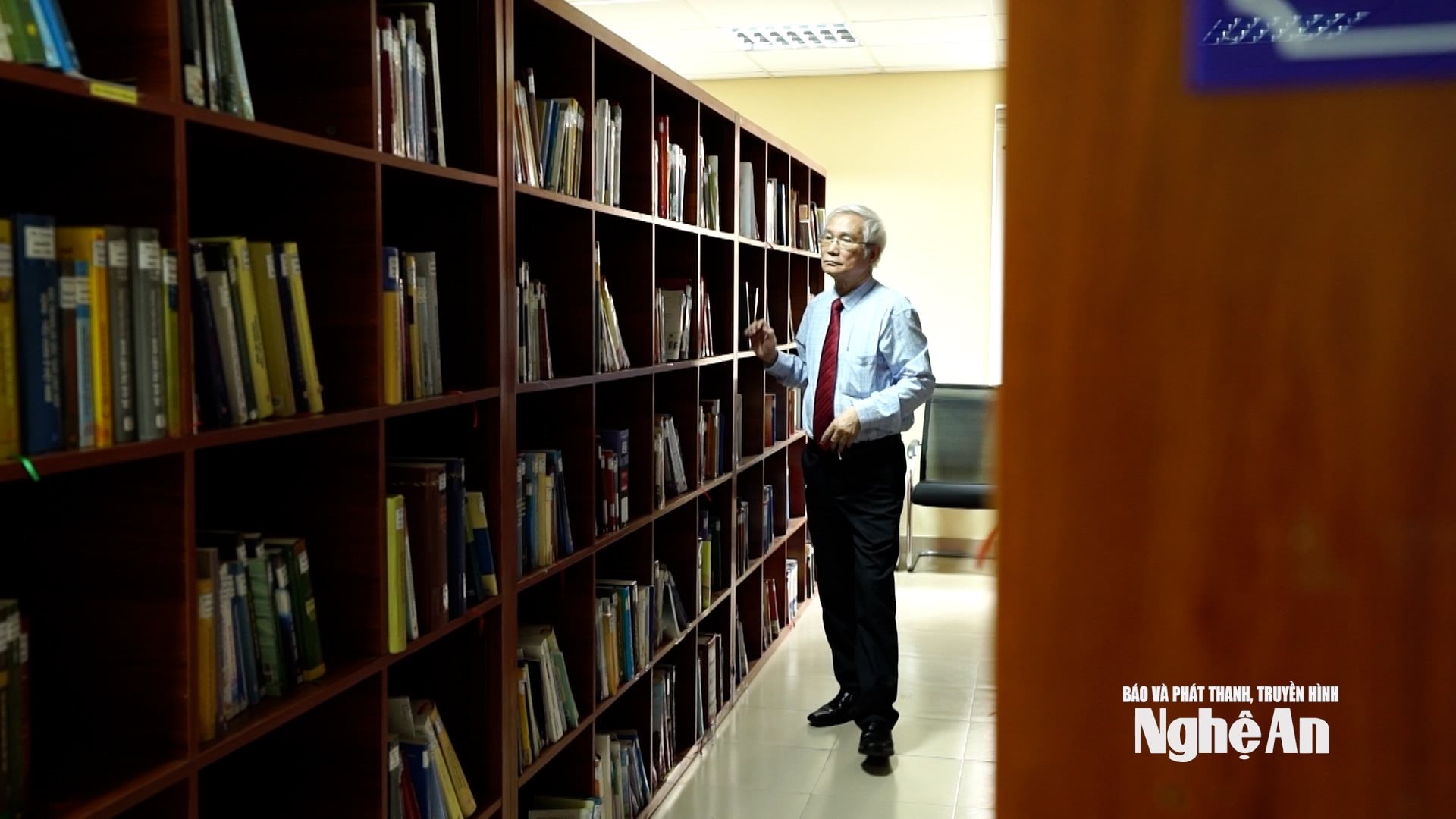
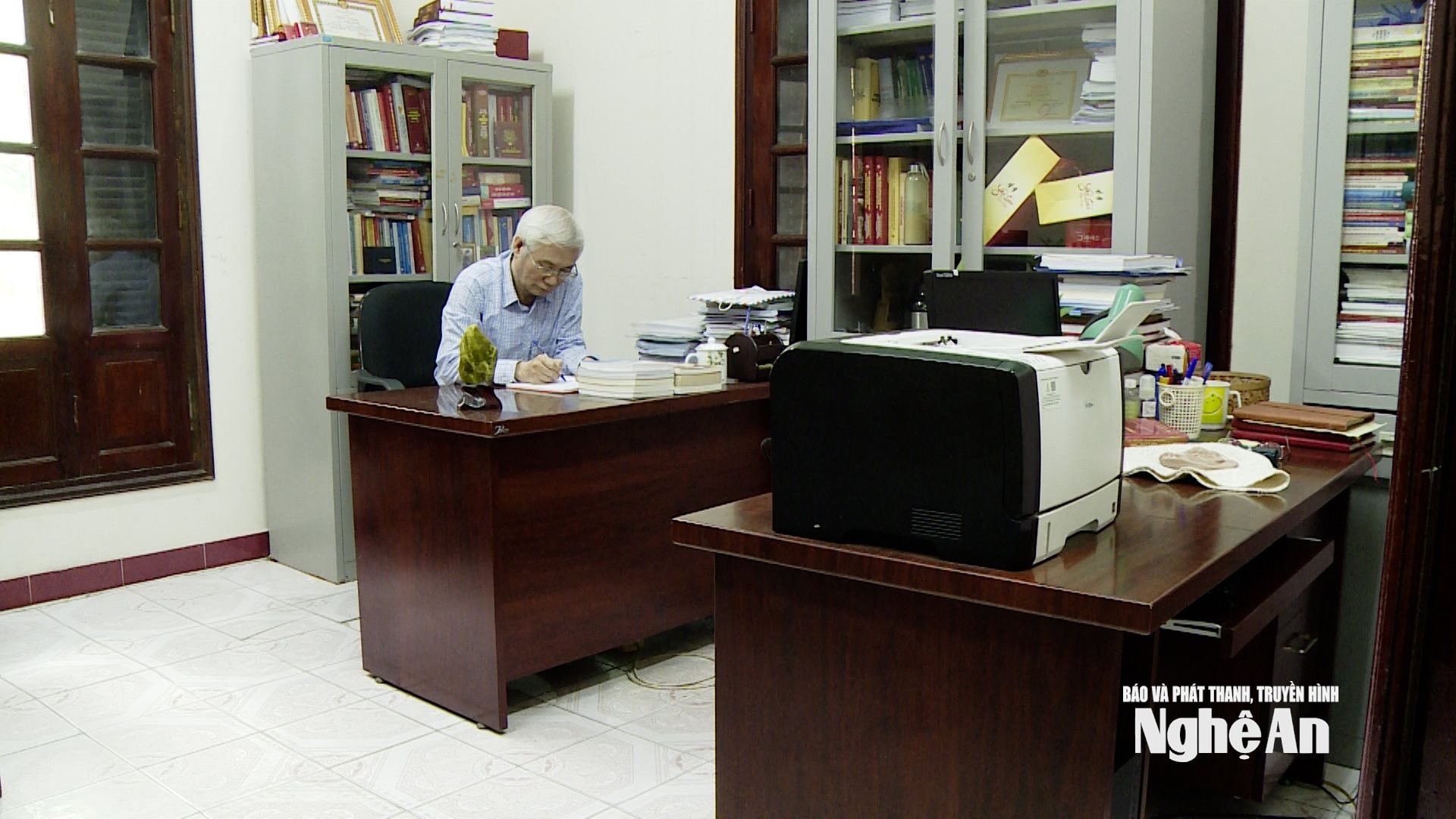
As a history student, right from his school days, Professor, People's Teacher Ha Van Tan taught his students: "Knowing the truth is not easy, and daring to speak the truth is often even more difficult. To write history, one must know historical methods and first of all, one must be an honest person, not an opportunist."
He also read many lessons from the Chinese historical records of Sima Qian. The story of the Spring and Autumn period tells that: The three brothers, the Grand Historian Ba, Grand Historian Trong, and Grand Historian Thuc, were beheaded one after another just because they dared to write the truth: "The general of Qi, Cui Zhu, was killed.king", but refused to write as ordered by Thôi Trữ as "The Immortal King died of a serious illness.”. When the fourth brother, Quy, entered the court to replace his brothers as the Royal Historian, this brother still wrote: “The Emperor of the Underworld, Cui Zhu, in the fifth month of the summer,".
Historian Quy had a bold statement to Thôi Trữ so that future generations would have to think about that immutable principle in practicing history: "He can kill the historian but he cannot kill the truth.Real".
However, to write correctly and clearly about the truth is not easy. He spent his whole life searching for the truth. In the 4.0 era, people have many information channels, it seems that accessing the truth is easier. But that is not the case.
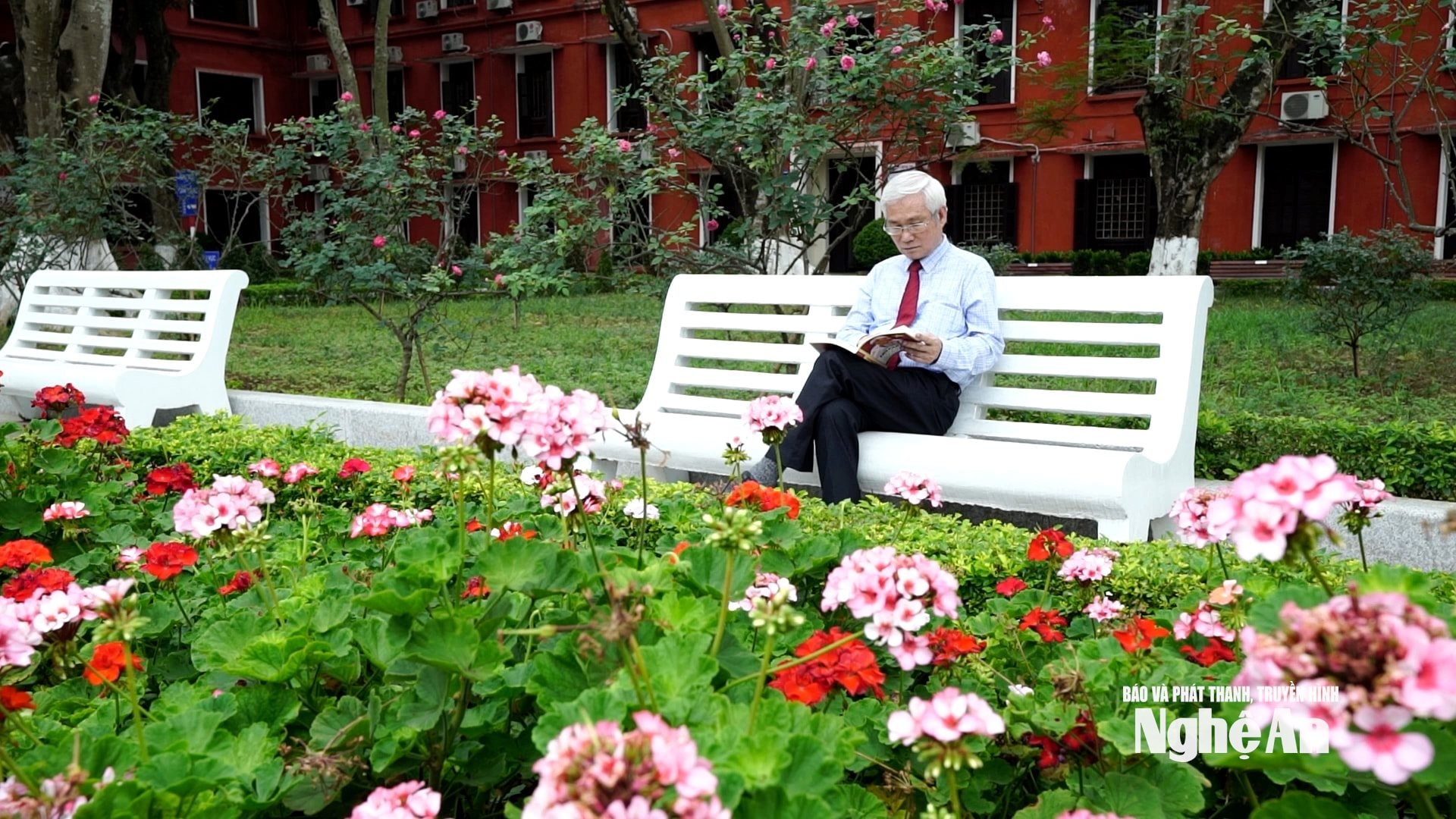
Some people think that: Relying on the results of sociological surveys (by questionnaires) is very accurate, but Professor Mach Quang Thang himself has seen the inaccuracy of such surveys. “What numbers should a historian believe? Writing history cannot avoid describing events and numbers. But which events and numbers tell the truth? If the description is not done well, it will fall into “descriptivism”, which some people use the French term anecdotisme. I see that in writing history, some people are superstitious about the numbers given by the research subjects. If you are superstitious about the numbers given by the subjects, it is common to take the subjects' opinions as your own, even though those opinions are very subjective and not true.
In fact, if we do so, the historian has gone from descriptiveism to subjectivity and prejudice, which many people use the French term to describe as “fixism”. (Professor Mach Quang Thang, “History is the sacred soul of the race and the intelligence of the nation”, Vietnam Education Electronic Magazine; November 29, 2015).
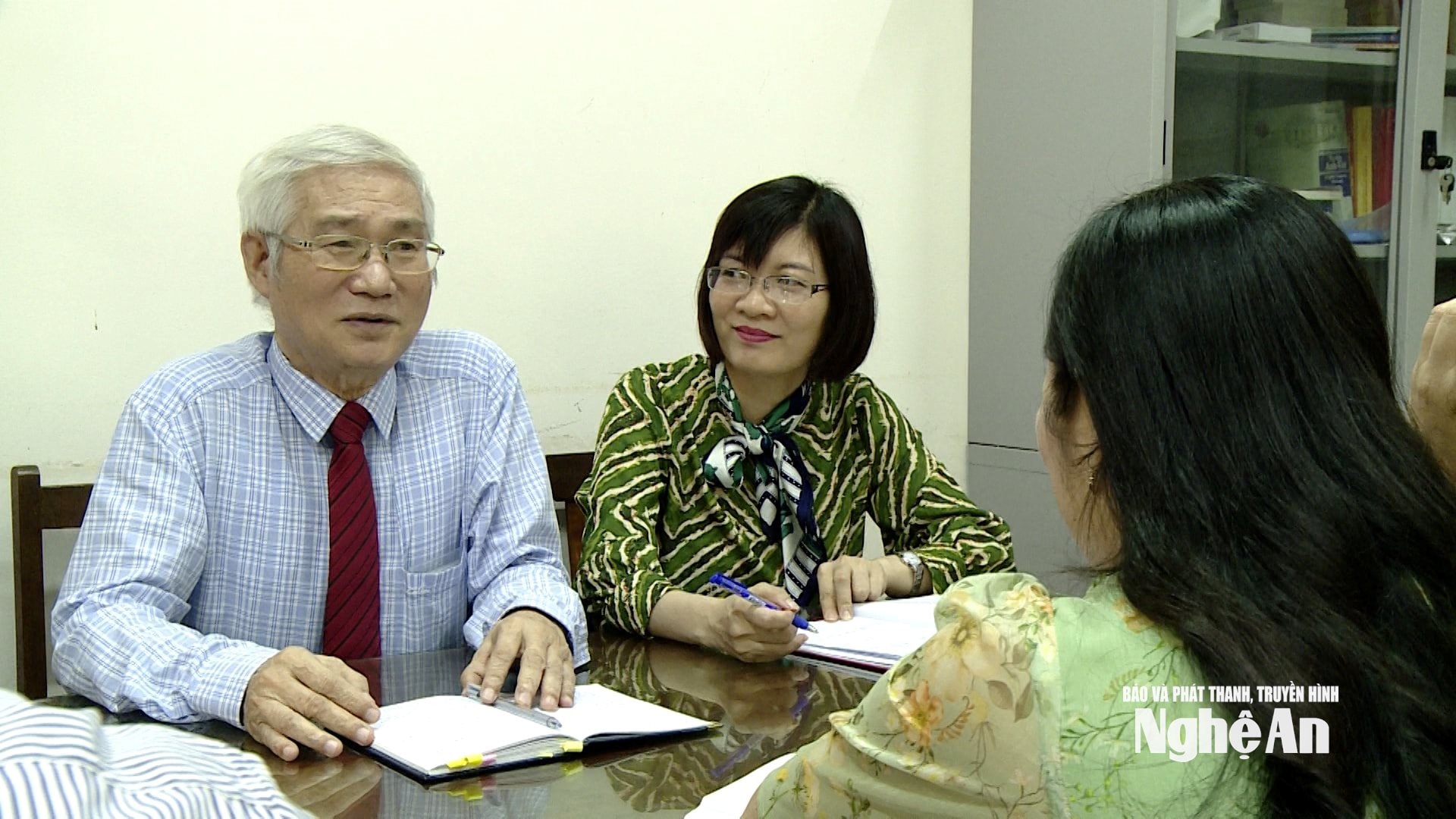
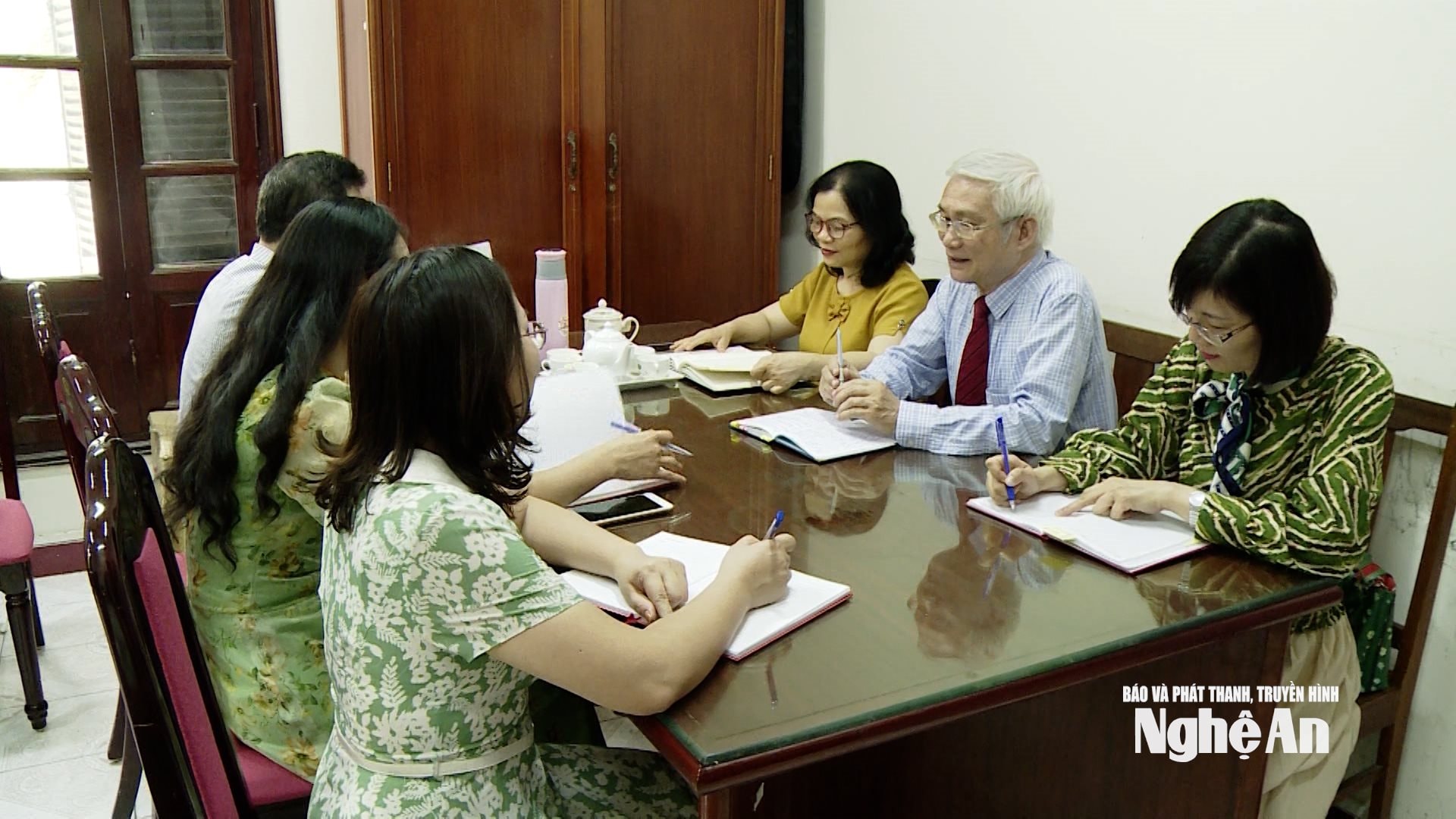
According to Professor Mach Quang Thang, we cannot rely on written reports, but only through fieldwork, practice, and research can we hope to find the truth. On that path, it is not always smooth and favorable. There are times when we silently and persistently pursue, sometimes for months or years, to find a telling number and the true nature of the event. History is a flow, reflecting the objective laws of life. Only when it reflects life correctly and truthfully, will that page of history reflect the spirit of the times, finding practical lessons for today and tomorrow. As a true historian, Professor Mach Quang Thang has struggled all his life to incorporate history into practical, current issues. His voice is objective and trustworthy, stemming from a rich and profound understanding of Marxism-Leninism and Ho Chi Minh's thought, solving problems arising from the lives of working people.

Through 50 years of research, Prof. Dr. Mach Quang Thang has focused on three main research directions: History of the Communist Party of Vietnam; Building the Communist Party of Vietnam; Ho Chi Minh Thought. With a thorough training, dedication and responsibility, Prof. Mach Quang Thang's writings provide a comprehensive and authentic view of the picture of modern Vietnamese history. With a genuine and simple writing style, he writes so that anyone can read it, a researcher, a student, or even an elderly person who is eager to learn can fully grasp the content he wants to convey.
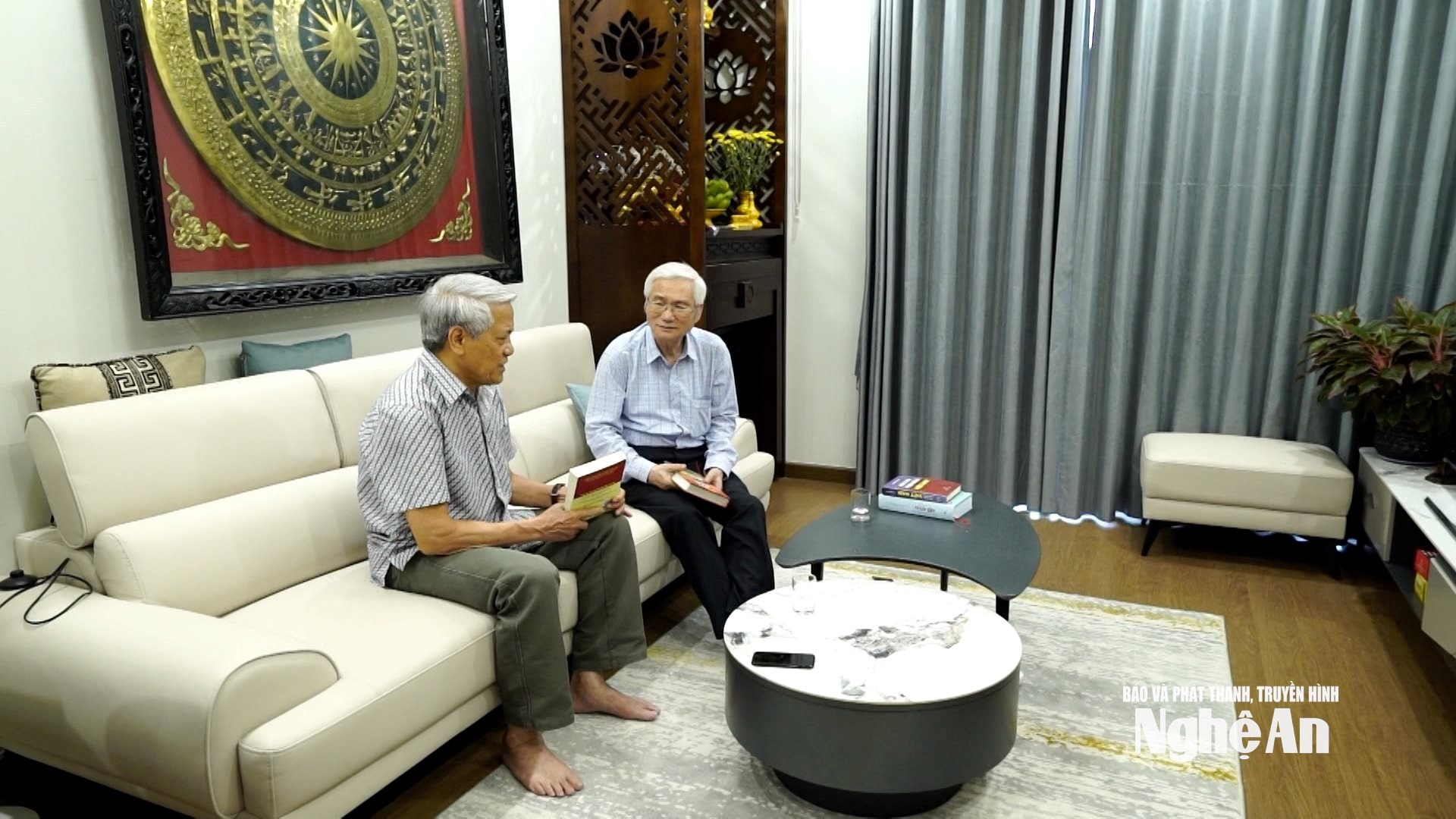
To date, Professor Mach Quang Thang is the author of 162 books written under his own name and with colleagues. With his own perspective, each page of the book he writes is a whole series of worries, a painstaking research from sources in books and reality... Each work is a mark on his scientific research path. That path is never smooth but has thorns, requiring perseverance and passion. For him, a scientific researcher, in the end, is also a servant of the people, serving the people, writing about issues arising from real life, aiming to bring happiness to the people, prosperity to his nation.
His works on Party building and Party history are systematic, comprehensive, and focused, becoming valuable documents for the social sciences and humanities, especially for politicians and researchers. In addition, Professor Mach Quang Thang devoted great enthusiasm to researching the life and ideology of Ho Chi Minh. For him, that is a large and attractive topic.

Still with the same whispering and intimate storytelling style, the story from a village in Nghe An, to the great context of the late 19th and early 20th centuries through the work "Ho Chi Minh - the man of life" has been vividly built. In it, many new details such as Uncle Ho's revolutionary activities from 1930 to 1941 are illuminated by reliable sources. The pen of a historian, sometimes also filled with emotion, sometimes, with a deep longing for Him..., blending with the emotions of people from all regions towards Uncle Ho. "Ho Chi Minh - the man of life", a work written in 5 years, collecting documents in 10 years, is one of the works that Professor Mach Quang Thang is most fond of.
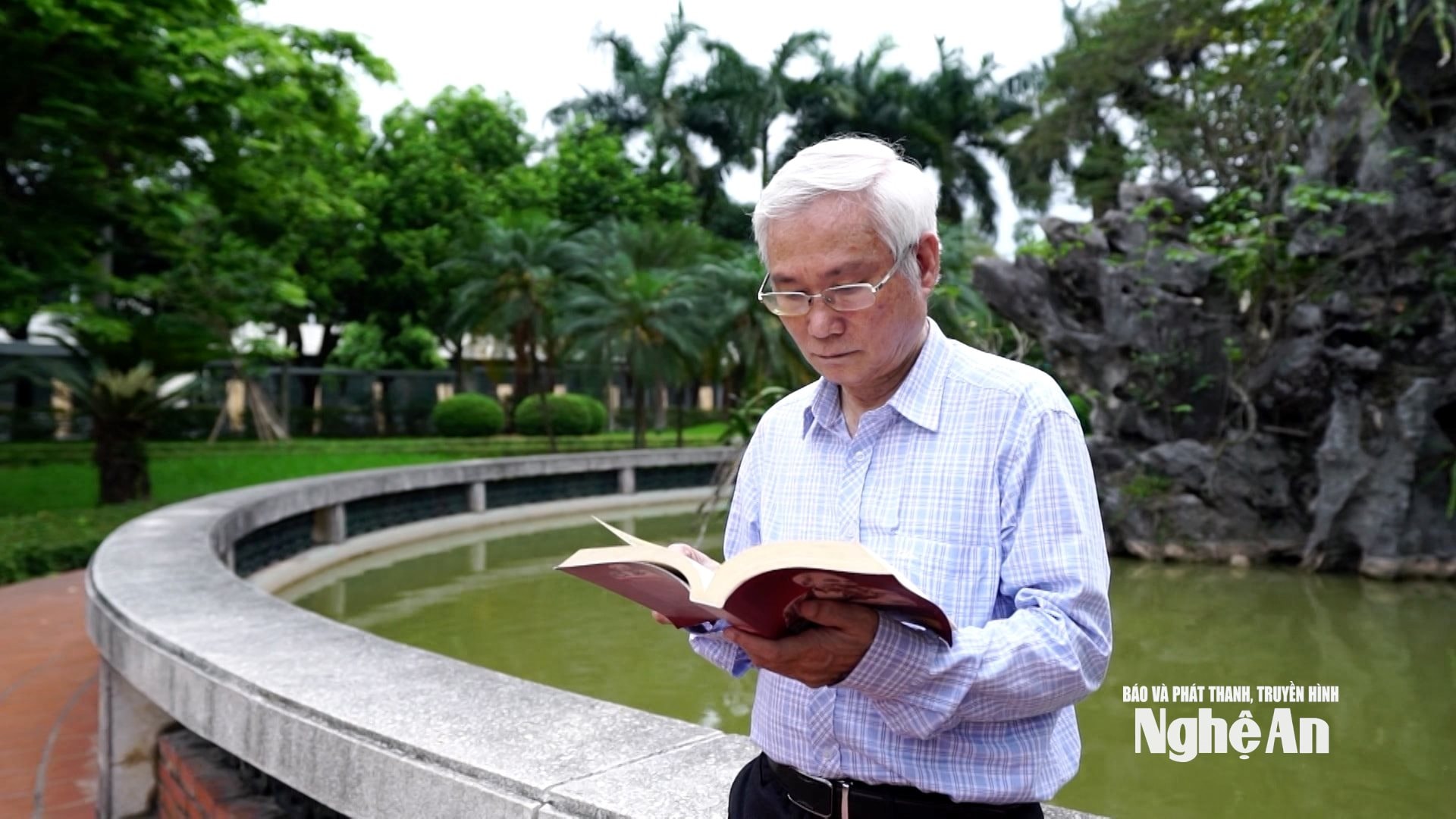
Professor Mach Quang Thang said that when he wrote this work, he had not yet met Uncle Ho. But it is not necessary to live in the heart of the event to understand the event. With documents left by Ho Chi Minh himself and domestic and foreign sources, with a non-deification point of view, the work has taken readers through each page of awareness, learning about his noble life from the most ordinary actions and deeds... The book has built a comprehensive portrait of a moral revolutionary, of the progressive thoughts beyond the time of a great man. From there, it points out the great lessons of a ruling Communist Party and the path to socialism in Vietnam, according to Ho Chi Minh's views and thoughts.
The source of Nghe An culture is evident in every daily activity, humble but profound, simple but resolute, going to the bottom of the issues that need to be researched. Perhaps, without a heart eager to learn, a desire to contribute, for a good ideal, the Professor would not have been so troubled. Somewhere, the image of a Nghe scholar appears, even though the Professor has been attached to Hanoi for more than 50 years. There is still the desire to go to the bottom of an event, still the sincere, straightforward way of speaking, and still loving the gift of the homeland: Nghe An coffee, even though he has lived away from home for more than half a century.
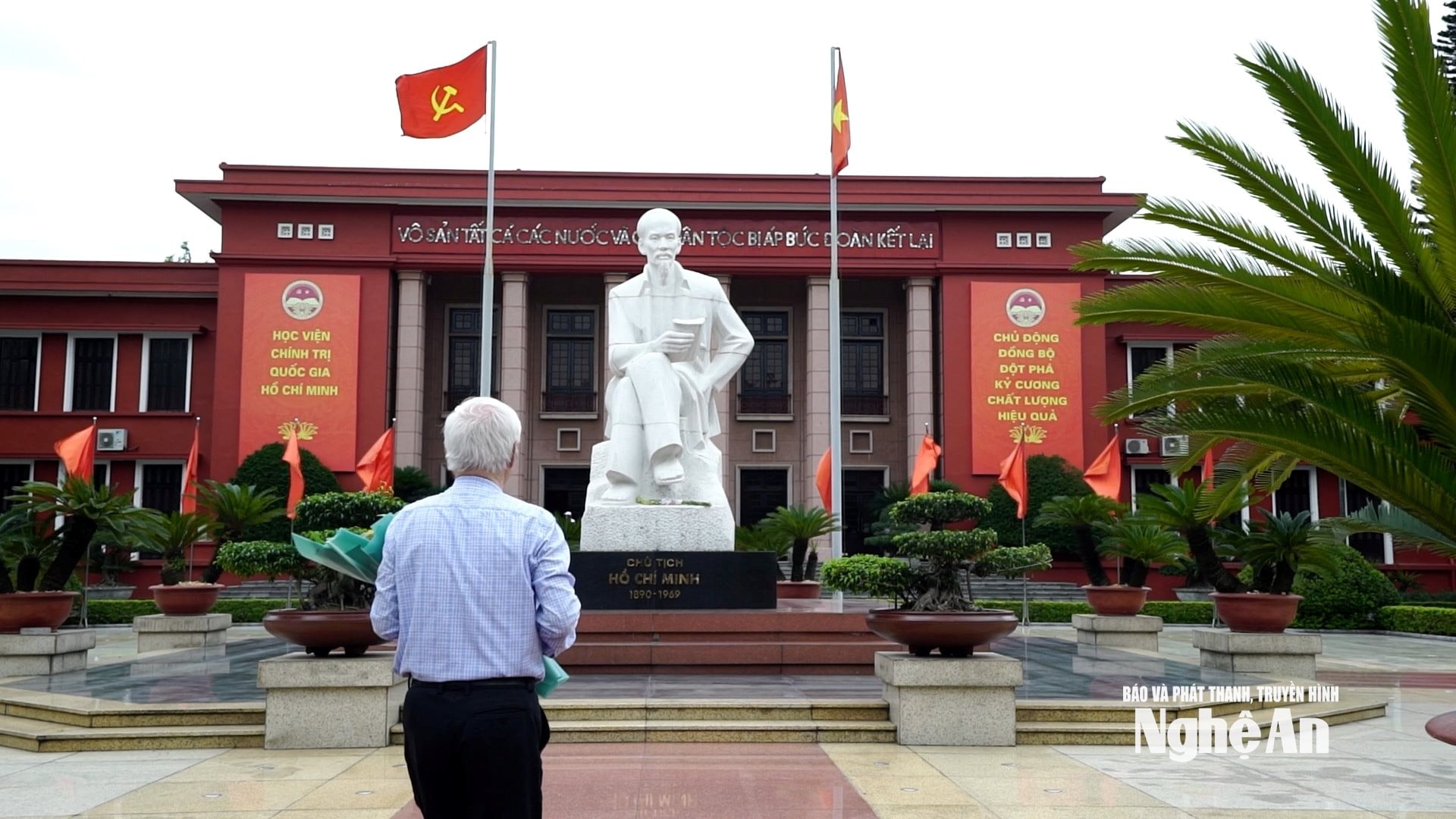
With 50 years of research experience, Professor Mach Quang Thang is also a lecturer at the Ho Chi Minh National Academy. He believes that research is the root of a lecture, and there will be no good lecture without in-depth research. Like a bee diligently making honey, all his life he has quietly acquired knowledge, constantly spreading it through theoretical lectures imbued with humanity and valuable scientific research works. To date, he has successfully guided 12 doctoral theses, 19 master's theses, and chaired 20 state- and ministerial-level scientific projects, nearly 600 articles published in domestic and foreign scientific journals...
Throughout his life, studying Uncle Ho and Ho Chi Minh's ideology, Professor Mach Quang Thang learned from him from his manners, lifestyle and working style. For him, learning from Uncle Ho is not difficult... Every day we try to do a good deed, multiply good things, multiply meaningful deeds, that is also a way to learn and follow his moral example, for a better future.

.jpg)
